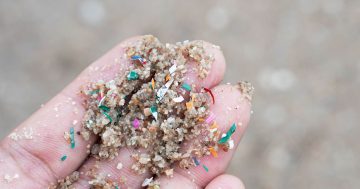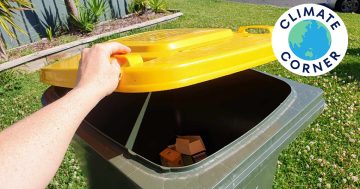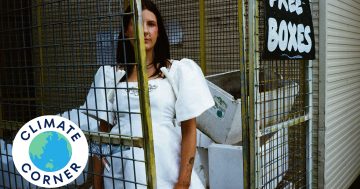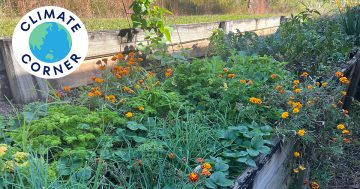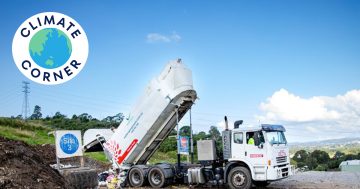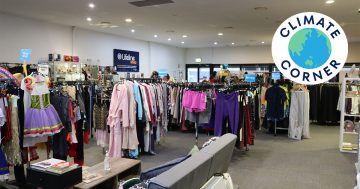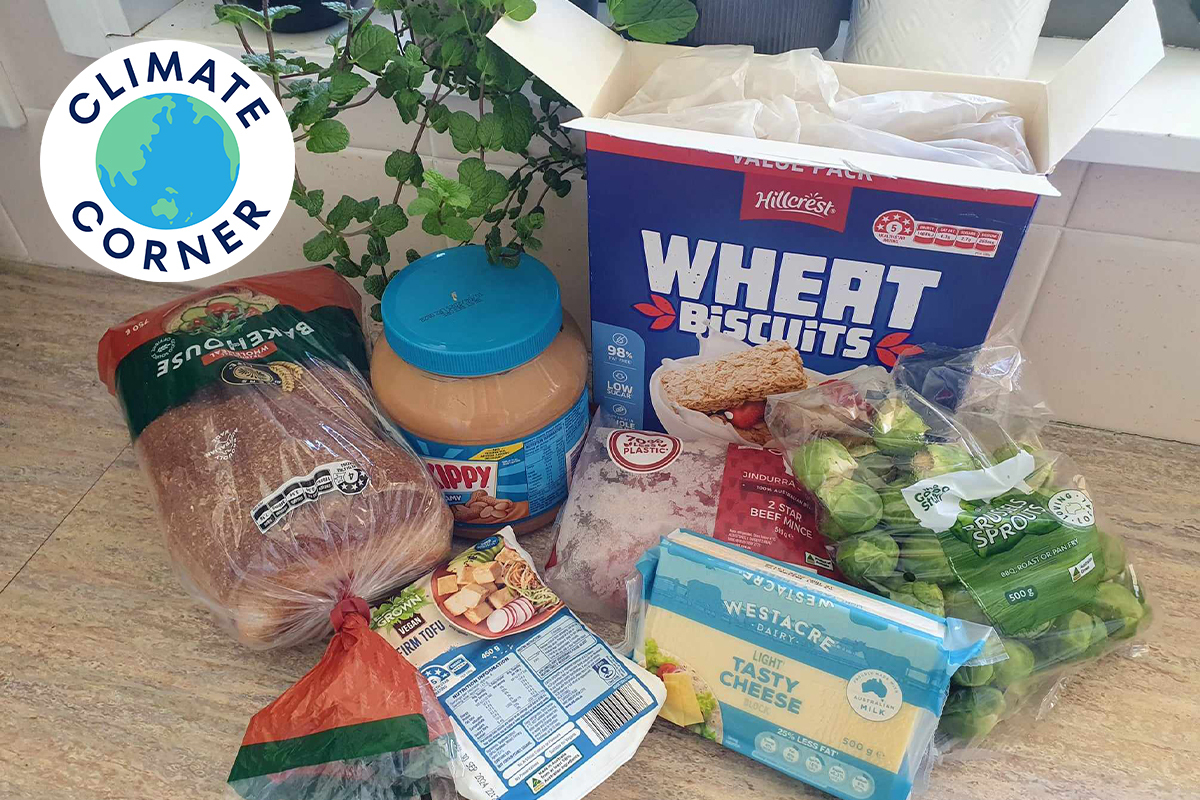
If you head into any Coles, Woolies or Aldi and try to buy plastic-free staples you might have a meltdown. We’ve got some ideas to reduce your plastic waste footprint. Photo: Zoe Cartwright.
Have you ever been reduced to tears in a supermarket?
Try to do your weekly shop without purchasing a piece of single-use plastic and you may well be.
Meat, tofu, cheese, Weet-Bix and bread – all of these staple items are impossible to buy without also purchasing a non-recyclable material that’s produced using fossil fuels.
When it does break down, it enters our waterways and food chain as microplastics, causing problems for our health, and the health of our environment.
So what’s a climate-conscious shopper to do?
First, it’s worth understanding that things weren’t always this way – and plastic isn’t always bad.
Professor Faisal Hai, Head of the School of Civil, Mining, Environmental and Architectural Engineering at the University of Wollongong, explains.
“Widespread use of plastics only really took off in the 1950s,” he said.
“They were introduced as a light and durable substitute for many items and made a welcome change to our lifestyle.
“They became very popular, use increased exponentially, and we began to use more and more single-use plastics.
“This overuse led to problems with littering and pollution – now we produce about 360 million tonnes of virgin plastics per year.”
While single-use plastics are almost always bad news, plastics can be really helpful.
For example, some chemicals can only be stored in plastic containers, because they react with other materials such as glass.
Some goods can only be shipped in plastic packaging because it’s lightweight and less prone to tearing than paper.
A lot of plastic use, however, is more down to habit than anything else – and habits are something we can change.
Professor Hai said there were a few practical ways to cut down on the amount of plastic waste we produced, and it came back to the three Rs – reduce, reuse, recycle.
First, reduce.
Take a look around when you’re doing the groceries – can you buy an equivalent item that uses less, or no plastic packaging? For instance, Aldi has begun to sell mince wrapped in a single layer of plastic, minus the plastic tray it used to come in.
Purchasing loose, rather than prepacked fruit and veg is another easy way to cut down, and some spreads and drinks come in glass jars rather than plastic containers.
If you’re buying new containers for household goods, check out the op shop, or if you have to buy new, get a glass or ceramic jar instead.
KeepCups, stainless steel straws and beeswax wraps can all help cut down on day-to-day single-use plastics.
If you do need to buy a product that comes in plastic packaging, go for the larger size where possible. If you go for the big Weet-Bix, it uses less plastic for the amount of product, and often ends up cheaper per serve, too.
If you have to buy something that comes wrapped in plastic, try to get creative with ways to reuse it. If you reuse plastic containers you might find yourself not needing to buy as much plastic Tupperware.
Or, if you’ve got pets, bread bags can have a second life as poo bags.
Plastic containers can also be handy if you do some shopping at a bulk-bin store, or a fruit market.
If you can’t reduce or reuse, then recycle. Most hard plastics can be recycled in Australia – give them a good wash, check for the number one to six on the bottom, and pop them in the yellow bin.
Soft plastics can’t be recycled in Australia at the moment, but the Australian Food and Grocery Council is conducting a soft plastic recycling pilot project with the goal of rolling out a nationwide soft plastic recycling scheme in the near future.
Professor Hai said it was important to keep in mind that recycling wasn’t a silver bullet though – we must focus on reducing and reusing plastics.
“We have done some recent work on plastic recycling, and demonstrated in the plastic recycling plants a lot of microplastics are generated,” he said.
“That was an eye-opener. It was a bit counterintuitive to imagine microplastic pollution is happening in an industry which has been built to tackle plastic pollution.
“When these plastics go to recycling plants they are shredded and washed. The microplastics are generated by shredding and carried away by the water used to wash them, then end up in natural water bodies.
“This doesn’t mean recycling is bad, but the plants need to reconsider the way they operate so they capture these microplastics.
“We aren’t going to get where we need to be solely through recycling.”
Finally, there’s legislative change. If plastics are an issue you feel strongly about, let your MP know you’d like to see changes – like the single-use plastic bag ban – that make companies come up with more sustainable packaging solutions.









